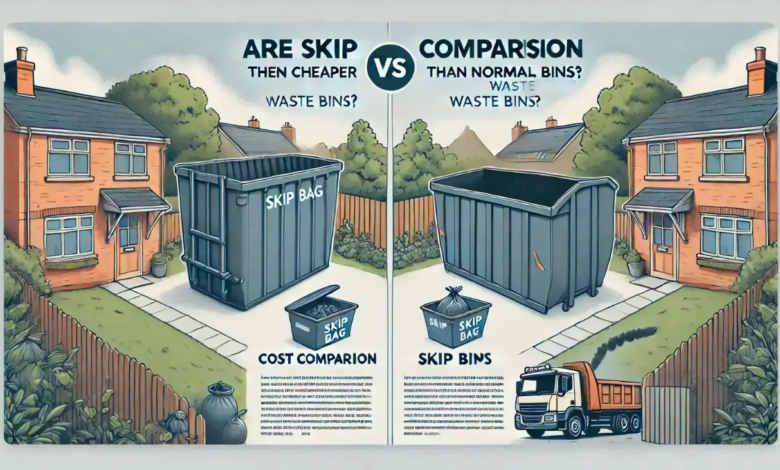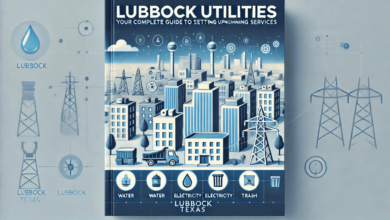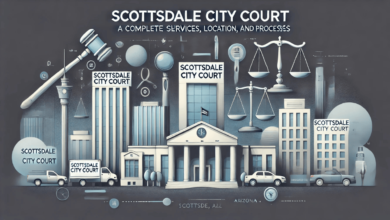Are Skip Bags Cheaper Then Normal Waste Bins?

When tackling waste disposal projects, the choice between skip bags and normal waste bins often boils down to cost and convenience. With rising concerns about budget-friendly solutions and efficient waste management, homeowners and businesses alike frequently ask, “Are Skip Bags Cheaper Then Normal Waste Bins?” This article explores the differences, costs, and practical considerations to help you make an informed decision.
What Are Skip Bags?
Skip bags are flexible, durable sacks made of strong materials that can handle various types of waste. They come in different sizes, making them suitable for smaller, occasional waste disposal tasks. Unlike traditional skip bins, skip bags are lightweight, collapsible, and easy to store until needed. Once filled, you schedule a pickup with a waste collection service.
What Are Normal Waste Bins?
Normal waste bins, also known as skip bins, are large, metal containers commonly used for large-scale waste disposal. These bins are ideal for construction sites, renovations, or major decluttering projects. Skip bins come in multiple sizes and can accommodate large volumes of waste, including heavy materials like bricks and concrete.
Cost Comparison: Are Skip Bags Cheaper?
The question, “Are Skip Bags Cheaper Then Normal Waste Bins?”, doesn’t have a simple yes or no answer. Several factors affect the cost-effectiveness of each option. Let’s break it down:
Upfront Costs
- Skip Bags: Typically, skip bags are more affordable to purchase upfront. A small to medium-sized skip bag can cost between $20 and $50. However, this doesn’t include the collection fee charged by waste management companies.
- Skip Bins: Hiring a skip bin often involves a higher upfront cost. Prices for skip bins vary based on size, but they typically range from $200 to $500 for a few days of hire.
Collection Fees
- Skip Bags: The total cost depends on the collection fee, which varies by location and service provider. In some cases, the combined expense of buying the bag and paying for collection can rival or even exceed the cost of hiring a skip bin.
- Skip Bins: The collection fee is usually included in the overall rental price. This simplifies budgeting and may offer better value for larger projects.
Capacity and Value
- Skip Bags: These are ideal for small-scale tasks or limited waste. However, they have a fixed capacity and cannot be overfilled, which might require purchasing multiple bags if you underestimate your waste volume.
- Skip Bins: With larger capacities, skip bins are better suited for substantial projects. For heavy waste like soil or rubble, they often provide a more cost-effective solution per cubic meter.
Convenience and Practicality
When choosing between skip bags and skip bins, cost isn’t the only factor. Convenience and practicality also play significant roles.
Ease of Use
- Skip Bags: Skip bags are easy to handle, store, and set up. Their lightweight design makes them a practical choice for individuals without heavy machinery or space for a large skip bin.
- Skip Bins: Skip bins require delivery and pickup by a truck, which might be inconvenient if space is limited. However, they’re ready for immediate use and don’t require additional assembly.
Flexibility
- Skip Bags: If your project timeline is uncertain, skip bags offer more flexibility. You can fill them at your own pace and arrange for collection when ready.
- Skip Bins: Skip bins are usually rented for a fixed period, making them less flexible for projects that take longer than expected.
Environmental Considerations
Both skip bags and skip bins rely on waste management companies to ensure proper disposal or recycling. However, some services offer environmentally friendly options, so it’s worth checking with your provider.
Hidden Costs to Consider
While skip bags may seem cheaper upfront, hidden costs can add up:
- Overfilling Fees: Overfilled skip bags may incur additional charges, or the collection service might refuse to pick them up.
- Permit Fees: Skip bins placed on public property often require a permit, which can increase the overall cost.
- Waste Type Restrictions: Both skip bags and skip bins have restrictions on what materials can be disposed of, which could lead to additional fees if not adhered to.
Frequently Asked Questions
Are skip bags better for small projects?
Yes, skip bags are ideal for small projects as they are more affordable, easier to store, and can be collected at your convenience.
Do skip bins require a permit?
In some cases, skip bins placed on public property may require a permit. Check with your local council to avoid fines or delays.
Can I dispose of heavy waste in skip bags?
Skip bags can handle some heavy waste but have weight limits. For substantial amounts of rubble, bricks, or concrete, skip bins are a better choice.
Which option is more environmentally friendly?
Both options can be environmentally friendly depending on the waste management service. Choose a provider that prioritizes recycling and responsible disposal.
What happens if I overfill a skip bag or skip bin?
Overfilling a skip bag or bin may result in additional fees, or the collection service might refuse to pick it up. Always adhere to the fill lines.
Conclusion
So, are skip bags cheaper then normal waste bins? The answer depends on your project’s size, waste type, and budget. Skip bags are cost-effective for small, flexible projects and occasional waste disposal. However, for larger or heavier waste loads, skip bins offer better value and capacity.
Before making a decision, assess your specific needs and compare local service providers to find the best option. Both skip bags and skip bins have unique advantages, so choose the solution that aligns with your waste management goals. By doing so, you can confidently manage your waste while staying within budget and contributing to a cleaner environment.



